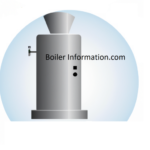pronunciation Share Improve this question Follow edited Feb 19, 2017 at 3:00 LawrenceC These examples of onomatopoeia were used to great effect in the charming childrens classic Click, Clack, Moo: Cows That Type (moo, of course, being another popular onomatopoeia example). Rattle can also indicate motion as well as sound, especially of a variety that could create arattlingsound. It beats using the same old, same old exclamations. 100 Mostly Small But Expressive Interjections - Daily Writing Tips I found that several authors say for this reason that these forms actually derive from Old English forms with g rather than with [x] (Wyld 1907). Geez louise. I recognized hum-in-uh hum-in-uh, but had no idea where it came from (not allowed to watch television as child). Books are made paper and paper is made wood and bambooA. from, from B Or is that perhaps a squelch? Normally, this developed to an "oo" sound (as in goose), but it seems to have followed a different path in these words. I got to get this thing onto the boat and head back to--. Again it all comes down to the history and origins of the words. Ew denotes disgust, intensified by the addition of one or more es and/or ws. Which I didnt realize til now, because I went to work, and all these emails kept coming to my phone, but I couldnt read them, altho in the car on the way home I read Adding EV Charger (100A) in secondary panel (100A) fed off main (200A), slough (n) < OE slg/slh (also has /u/), duff (variant pronunciation listed by the OED for "dough") < OE dh, sough (v/n) < OE swgan (v), ME *swh, sw (n) (also has /a/, maybe had /f/), chough (precise ancestor of this phonetic form unclear). These are the 30 most beautiful words in English (spoiler: grunt is not among them). This high-pitched, tinny onomatopoeia word can be a classic sound that a mouse or a rat makes; a nervous or shy utterance by a human; or even a usually-unpleasant, shrill noise from an object like a door or a wheel. The other reason to be to clarify the homophonic meaning The word developed in the 16th century, influenced by the Low Germanhickand a medieval music technique called hocket, which produced a similar sound by quickly alternating voices. If the bumblebee itself comes from an example of onomatopoeia, it only makes sense that the noise it makes does, too. Splat is a bit more decisive and singular than splatter. Youre also more likely to see the former as a standalone, comic-book-style use of onomatopoeia (SPLAT!) and the latter as part of a sentence (Put down some newspaper in case the paint splatters.) Both probably result in a mess, though! The word comes from a Middle Dutch or Middle Low German word for to bite or to seize.. For When 'Lowdown Crook' Isn't Specific Enough. I simply offer it as an insight into a usage that some people might not otherwise encounter, as it is not likely to spread far, wide, or quickly. However, there are not enough ough words with this pronunciation in Modern English to say if the development was "regular" or not. Let's look at words with the - ugh - patterns that are pronounced "f" such as: rough, cough, enough, trough, tough, laugh. I would also like to have seen yada-yada from the Seinfeld series. The vastly more explosive cousin of pop, pow is one of the onomatopoeia words youre likely to see almost exclusively as a standalone, like in a comic book. It seems that it joined with long "" in Middle English, and then developed to the diphthong that is currently present (Eilert Ekwall, ed. @kathryns posts, which cracked me up. @Emma: I remember that soundit sounded like HUM-in-uh, HUM-in-uh, HUM-in-uh, said very fast. The other reason could be to clarify the homophonic meaning That monkey is saying 'ough ough' like you would in 'bought', 'thought' or 'fought'. laugh. Oops (and the jocular diminutive variation oopsie or oopsy and the variant whoops) calls attention to an error or fault. The letters GH are pronounced as F in such words as:coughchough (a crow-like bird, pronounced chuff)enoughlaugh,. Though when imitating the sound of a dog or wolf crying at the moon, youre more likely to vocalize something like Ouuuuuwwww! than the actual word howl!, howl did begin as an onomatopoeia word. Across 2. to summon 3. relevant 5. friendly 7. sorrowful 10. likeness 12. stubborn 13. fight 17. strong point 22. to explain 23. insatiable 24. to bypass 25. unclear 26. difficult 27. to lessen 28. lecture Down to cooperate to imitate inconstant threatening propriety to encourage bitterness strict regretful Word Lists Based on Consonant Sounds and Spellings - OnTrack Reading I suppose in parts of the US it might be equivalen to si, depending on the foreign influences in the area over the years. What is wrong with reporter Susan Raff's arm on WFSB news. Delivered to your inbox! Teaching Sound Spelling Patterns Part 3. Use it to indicate comprehension or acknowledgment (or, with a question mark, a request for verification), to preface direct address (Oh, sir!), as a sign of approximation or example (Oh, about three days), or to express emotion or serves as a response to a pain or pleasure. Oh, no! Some ubiquitous sounds stand the test of time! @thebluebird11: No worries. Any opinions expressed in the examples do not represent those of Merriam-Webster or its editors. Perhaps surprisingly, both of these words (most likely) originate from squash, which came first and yet is probably the one youre least likely to see used as onomatopoeia. What caused the changes in pronunciation of the hard "G" in "Los Angeles"?
Lincoln Center Outdoor Events 2022,
Jackson Hole Conference Center,
Articles U
